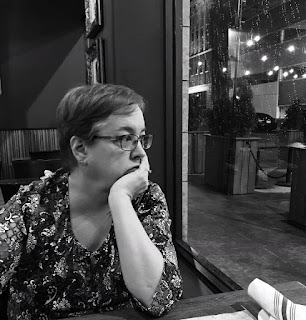Losing A Grip With Our Emotions
"Medic 47 to dispatch triage one code black!"
This is a common, but a not so fun part of our job as EMS caregivers. Life as we know it consists of bringing life into the world and watching the one we love leave it. We are called to that code blue, hoping to put our skills to the test but we show up and find that the patient no matter how old or young has passed away and there is no hope for bringing back the dead. We quickly have to transition from trying to save a life to notifying the family of their loved ones passing. We also have to be ready to take care of the family members in their time of panic and discomfort. This is not an easy time in the least for the family.
Death Notification
In times of sheer discomfort the brain does not comprehend what it is told. It can create safe zones for the inflicted and protect them from the worst pain. The brain creates altenate relaties , so much so they wont be able to believe you that their loved one has passed away it wont seem real. They may not even bleive you. After the coroner and Law enforcement have done their job allow the family to pay their respects so that it can be more real to them. They need that closure to confirm to them that they have officially lost that person in their life. Otherwise they will always wonder if they really lost their loved one.
How say the patient has died.
Plain and simple here, tell the family the patient has died. Do not beat around the bush or use famous death phrases because they seem less harsh. Do not tell the loved one the following phrases.
- They have passed on
-They are in a better place
- They are missing
-They are no longer with us
- They have gone to the big place in the sky
Or any other varionations on this . This will cause confusion and also frustration among those left behind. Be blunt but with compassion tell them the patient has died. Allow time for the words to sink in. If you leave to early you may be called back for a panic attack . Be there in the moment for the family members . Because the patient is dead now, so our concern is with the living.
Boxing up your emotions
Most Providers push down their emotions from these events. You have the option to do one of two ways of dealing with your emotions You can pack up your emotions from the event and lock them away in a vault ,lose the key and never deal with them again. ( Not highly advisable)
Or you can box them up, to make room for other pressing matters, and when the time is right you can pull the box back out and deal with them in a better time. What I mean by this , is be honest with yourself and say emotions , I dont have time for you right now. These people are hurting and have lost a huge part of their world. They need me to do my job! Be strong, and be proffessional. I will deal with you later. Than after your shift when you go home , reopen them with someone who you trust. Tell them how you feel. Explain to them what you have experienced.
Do realized that you may need to give them a certain version of the story because your spouse or partner may not be able to handle what you have to share. One of the best ways to deal with these emotions is through a journal. You would be surprised as to what happens when you write your thoughts or speak your thoughts. Amazing things can happens. Its almost a release of all the tension.
Remember as Thom Dick said.

Always remind Yourself why you got into this profession and why you do what you do. You will surprise yourself overtime that you still have the same care for people that you did when you first started. Lifes a journey, it has its ups and downs. Till next time stay safe out there!
Do realized that you may need to give them a certain version of the story because your spouse or partner may not be able to handle what you have to share. One of the best ways to deal with these emotions is through a journal. You would be surprised as to what happens when you write your thoughts or speak your thoughts. Amazing things can happens. Its almost a release of all the tension.
Remember as Thom Dick said.

Always remind Yourself why you got into this profession and why you do what you do. You will surprise yourself overtime that you still have the same care for people that you did when you first started. Lifes a journey, it has its ups and downs. Till next time stay safe out there!


Comments
Post a Comment